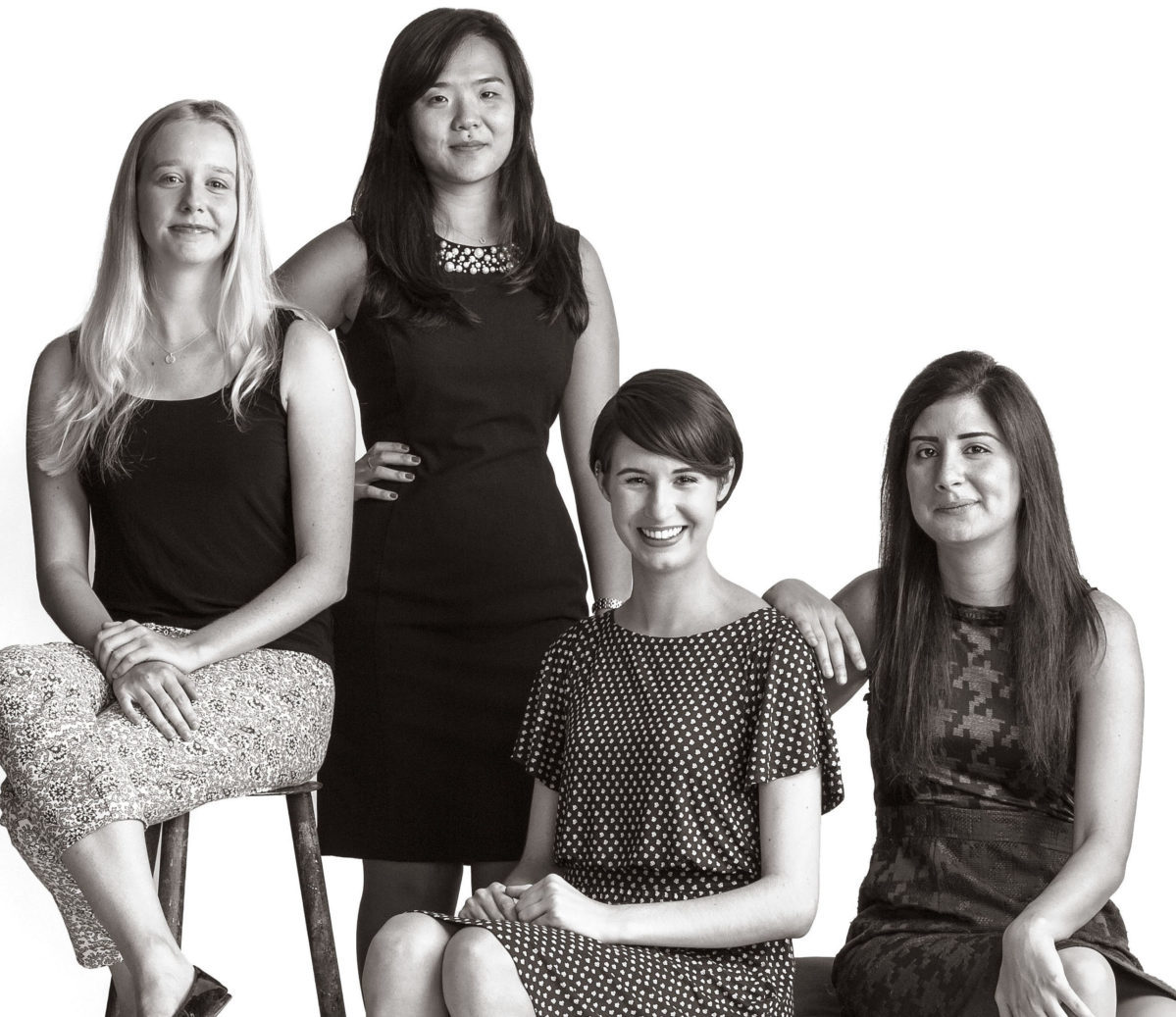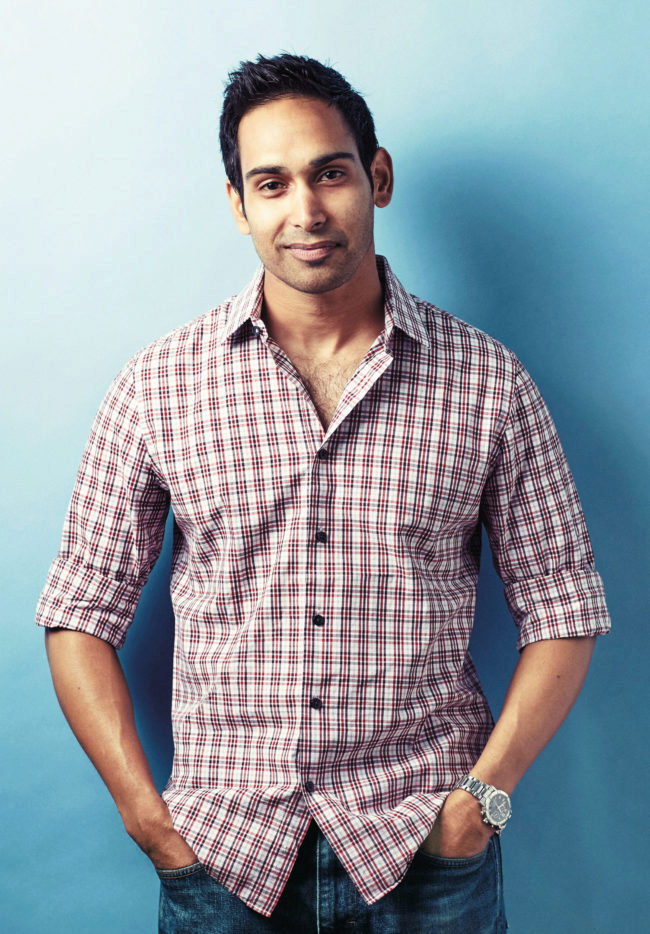Uncategorized
Finance PhD Student, Marco Grotteria, is named among outstanding paper by the Jacobs Levy Center working paper series
Wharton PhD candidate Marco Grotteria, co-authored a paper that was regarded as an “Outstanding Paper” by the Jacobs Levy Center. This was part of the working paper series, and Marco along with his colleagues received $5000 as a reward. Click to see the Jacobs Levy Center Research Prizes
2018 Baker Retailing Center PhD Grant Recipients
Congratulations to our PhD students, Park Sinchaisri, Caitlin Gorback, Celia Gaertig, and Edward Chang on receiving the Baker Retailing Center PhD Research Grants for 2018! Click here to read more about the recipients’ research.
Wharton Doctoral Students Helping Women in Business Academia
The Wharton Society for the Advancement of Women in Business Academia is off to a fast start.

Lack of mentorship, weak professional and social networks—these are just a few of the unique challenges facing women building research careers in business-related fields. To confront those obstacles and work to overcome them, our group of Wharton doctoral students founded the Wharton Society for the Advancement of Women in Business Academia (WSAWBA) in 2013.
One of the highlights of WSAWBA’s first year was a star-studded panel of female Wharton faculty members who discussed their personal experiences and offered advice on navigating the academic job market. Professors Katy Milkman, Ann Harrison, Ashley Swanson, Jessie Handbury and Natalya Vinokurova balanced levity with candidness, earning raves from a crowd of more than 70 students.
Last year, WSAWBA opened this conversation to a wider audience of faculty and students across business schools, establishing the first Women in Business Academia Conference here on campus. The event featured a wide array of keynote speakers from the Cornell School of Industrial and Labor Relations, Harvard Business School, Wharton and Yale School of Management, as well as PhD student research presentations and a job-market panel. This past April, the second annual conference was even larger, with representation from 11 business schools and seminars throughout the day on topics that ranged from successfully navigating the academic job market to seeking mentors in academia to managing work/life boundaries to understanding the day-to-day life of a young professor.
Through these successful first few years, the Women in Business Academia Conference has cemented its place as an important opportunity for female faculty and doctoral students to engage in a dialogue over their identities. We look forward to fostering this conversation and providing a network for female academics during our next conference in the spring of 2017 and for many years to come.
—Lesley Meng
This story originally appeared in the fall 2016 edition of Wharton Magazine.
Wharton PhD alum, Amit Bhattacharjee, featured in Wharton Magazine

An impactful professor and a personal revelation sent Amit Bhattacharjee C04 W04 GRW12 from business back to academia.
A flower distribution company near Hoboken. A real estate startup in Manhattan. Another small business where I didn’t stick. Three years into my post-baccalaureate life, my career path was meandering. Like a lot of people in their early 20s, I felt underutilized and under-stimulated doing daily tasks that obscured deeper questions. Why were we doing what we were doing, and why did it feel disconnected from the economic principles I’d learned as an undergrad at Wharton?
In retrospect, the pull back to academia was inevitable. At the time, it felt like a lifeline. So I began taking the bus to Philadelphia for consumer-behavior seminars taught by one of my favorite professors, Americus Reed II. Less than two years later, in 2007, I was back at Wharton as a PhD candidate in the marketing department.
Something clicked when I realized that asking those questions could be a contribution in itself. As I explored how the psychology of decision-making compared to the tenets of economic theory, I began to wonder how the perspectives of psychologists, economists, businesspeople and consumers might benefit from each other. Everyone has a piece of the truth, and we can all help better understand our market society and the roles we play in it.
This approach has guided most of my ongoing research. My work examines how our moral beliefs and cultural assumptions shape our judgments and behaviors in the marketplace. For example: Why do many people perceive profit as fundamentally harmful to society, even as their consumption choices determine who benefits? And when do people view personal moral beliefs as more or less relevant to professional performance?
These sorts of questions lack easy answers but underlie much of our behavior. I’m confident that business practice can contribute to solutions for many of our thorniest social problems, but unlocking its potential is up to all of us. —Amit Bhattacharjee, assistant professor, Rotterdam
School of Management
Eric Moore of the Applied Economics Department – 2016 BlackRock Applied Research Award Finalist
Finalists to defend papers in front of panel of finance leaders from BlackRock and academia
New York – November 30, 2016 – BlackRock, Inc. (NYSE: BLK) is pleased to announce the finalists for the 2016 BlackRock Applied Research Award which recognizes the top job market paper submitted by PhD candidates on a practical topic pertaining to financial markets, economics, investment management or risk management. Each finalist will meet with a jury panel to defend their job market paper at BlackRock’s New York office on November 30, 2016. The winner will be announced at the end of that day and will be awarded $25,000 by BlackRock.
Finalists were selected by BlackRock’s Applied Research Award Committee which consists of a panel of finance leaders from BlackRock and academia. The submitted papers were assessed on a number of criterion, including the demonstration of thought leadership, a focus on a practical problem of relevance, the use of advanced quantitative techniques, the analysis of an interesting new data set and the offering of a practical solution.
The five finalists in the 2016 BlackRock Applied Research Award are:
• Adrien d’Avernas, Department of Economics, UCLA Anderson, University of California, Los Angeles (http://www.adriendavernas.com/ )
• Eric Moore, Department of Economics, The Wharton School, University of Pennsylvania (https://bepp.wharton.upenn.edu/profile/1738/)
• Pablo Slutzky, Department of Finance and Economics, Columbia Business School, Columbia University (http://www8.gsb.columbia.edu/cbs-directory/phd/PSlutzky17)
• Tarik Umar, Department of Finance, Booth School of Business, University of Chicago (http://home.uchicago.edu/~umar/)
• Katherine Waldock, Department of Finance, Stern School of Business, New York University (https://sites.google.com/a/stern.nyu.edu/kwaldock/ )
Congratulations, Eric! #WhartonProud
For more information on BlackRock and the Applied Economics Research Award, please visit: https://www.blackrock.com/corporate/en-us/newsroom/press-releases/article/corporate-one/press-releases/appliedresearch_US


